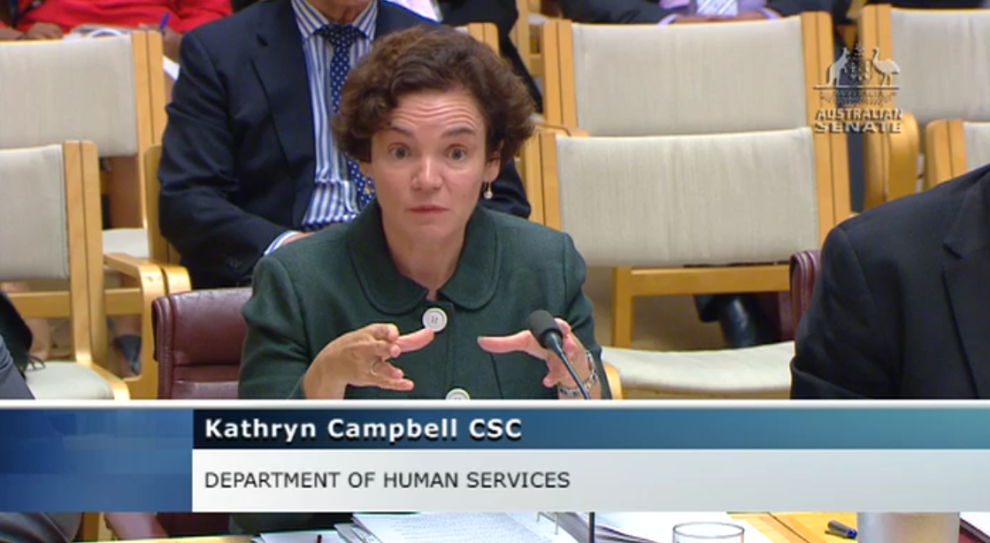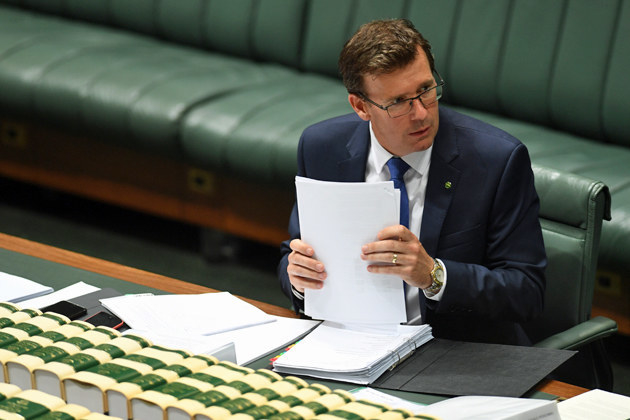External debt collectors hired by Centrelink as part of the government's controversial automated debt recovery program are being paid a commission for each debt they recover, a Senate inquiry has been told.

Officials from the Department of Human Services told a Senate inquiry it contracts three external debt collection agencies to collect the so called "robo-debt": Dun & Bradstreet, Probe Group and Australian Receivables.
Each debt collector is paid a commission based on the amount they recover.
"It's a commission based on the amount collected for each debt... no flat fee, it's just commission," an official from the department told the inquiry.
But the department wouldn't reveal the rate of commission that debt collectors receive under the tiered payment system.
Officials claimed that because there was a competitive tender for the contracts, the payment amount fell under "commercial in confidence" and couldn't be publicly disclosed.
Centrelink's debt collection system differs from the Australian Tax Office's, which contracts people on a flat fee with no commission, officials said.

The Senate committee heard evidence of external debt collectors being aggressive and intimidating towards clients since the new debt recovery program started in July last year.
The Australian Council of Social Services (ACOSS) told the committee that private debt collectors had threatened to seize clients' assets or take them to court if they refused to repay their debt immediately. More than 6,600 people had received a knock on the door from a debt collector without first receiving a debt letter from Centrelink.
"In the lead up to this program being unleashed there was a perception created that if you do not comply, you may go to jail," ACOSS chief executive Cassandra Goldie said.
Goldie said the number of people who had been intimidated into repaying debts they did not really owe was unknown thanks to the creation of a "climate of fear".
Greens senator Rachel Siewert questioned why the government was paying debt collectors a commission.
"Do they think it will result in more money being raked back?" she asked BuzzFeed News. "This might go a long way to explain the accounts we’ve heard of overzealous private debt collectors in pursuing potentially incorrect debts."
Siewert called on the government to release the rate of commission, and said the public deserved to know how much was being paid to private debt collectors to collect money from struggling Australians.

Since moving to an entirely automated system in July last year, 169,000 letters have been sent by Centrelink asking people to explain discrepancies in welfare payments and reported income.
But at least one in five debt letters – which compare annual income information from the Australian Tax Office to the fortnightly income reported to Centrelink – were based on incorrect figures.
36,345 people had their debt completely written off between July and December last year after asking the department to investigate. Others have had their debt reduced to as little as $5 per week.
Centrelink said it had been paid $24 million of the $300 million it claimed is owed.
There was no plan to scrap the program, however the Department of Human Services said it was looking to refine the debt-collection process.
